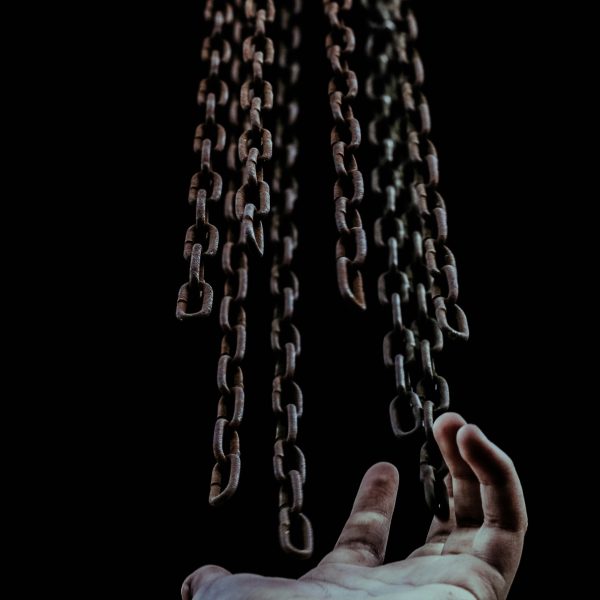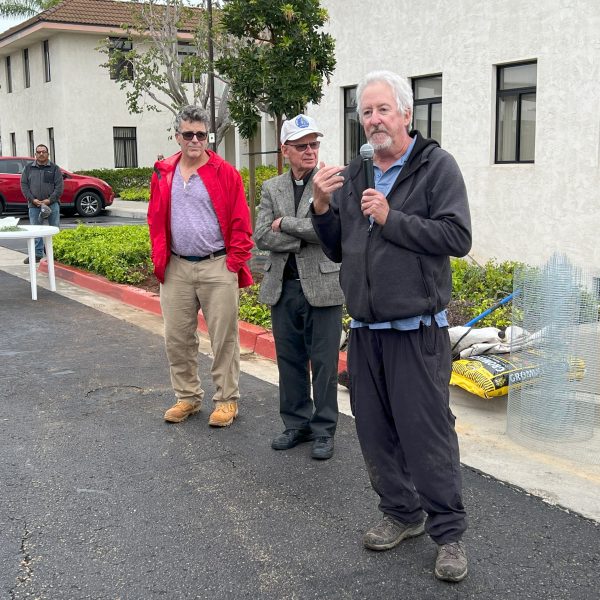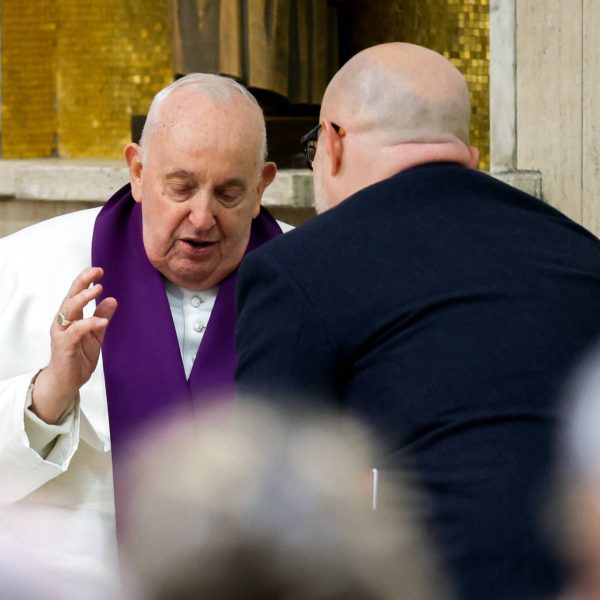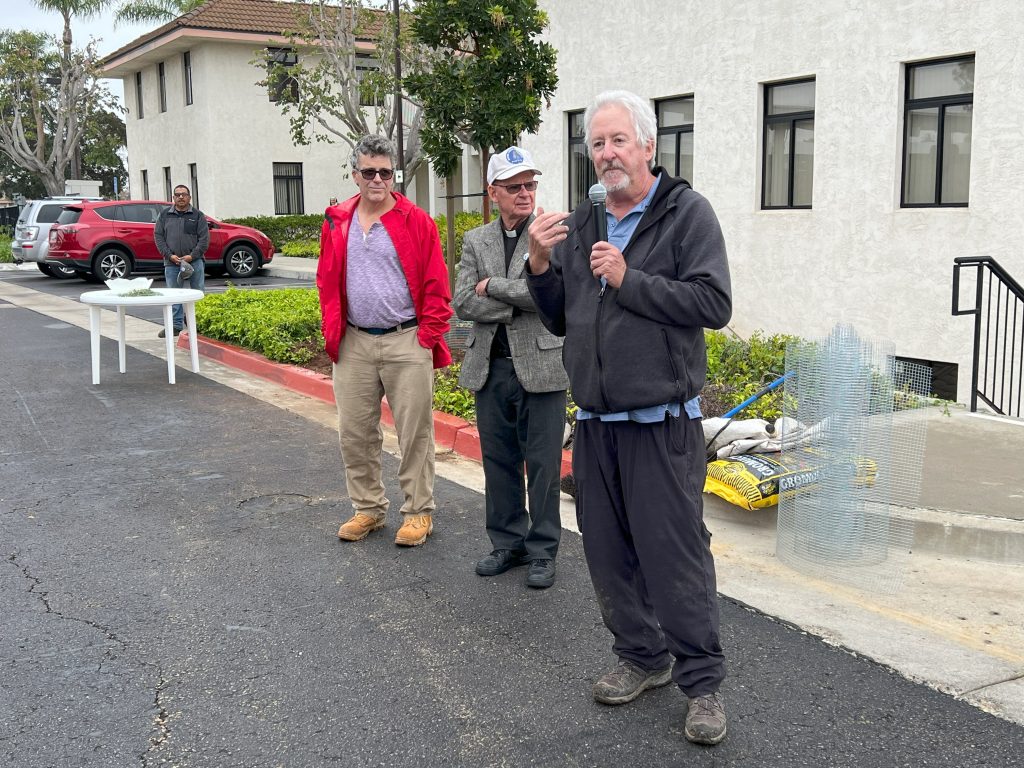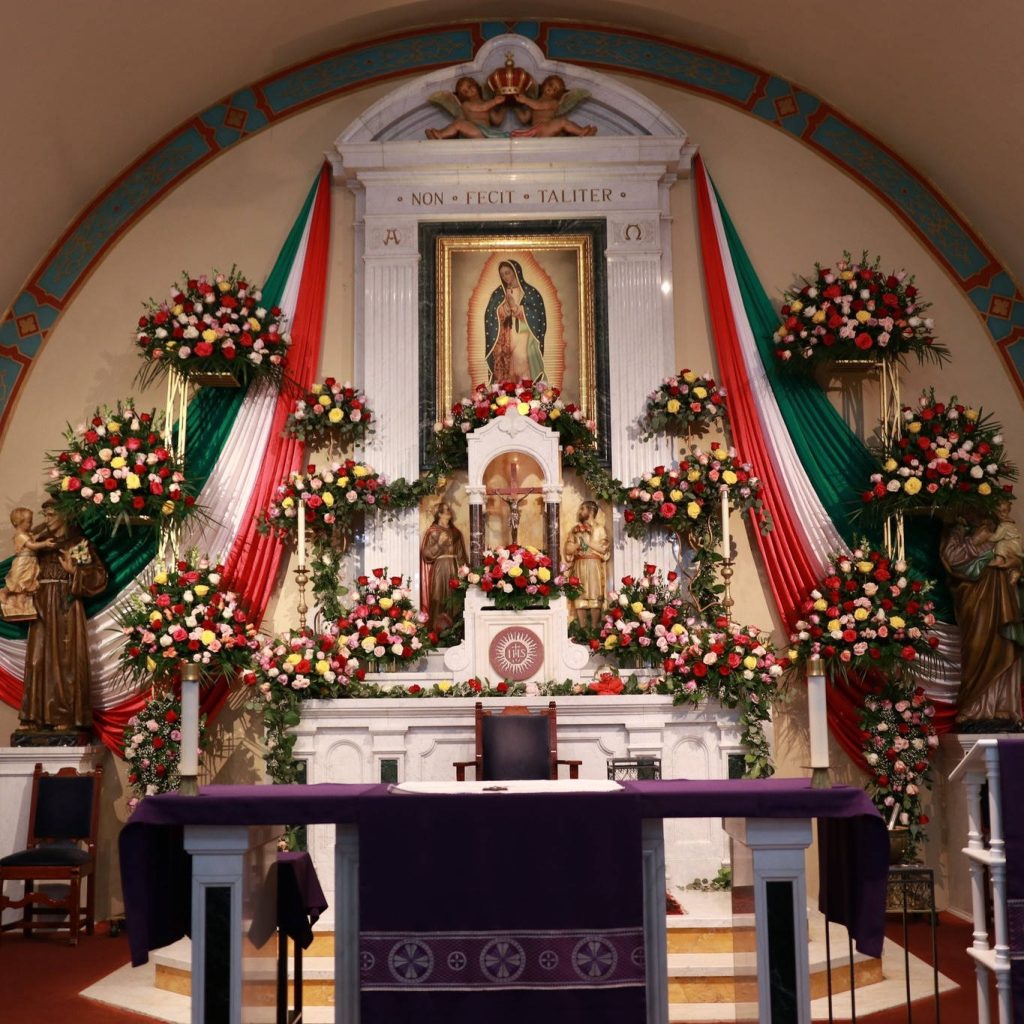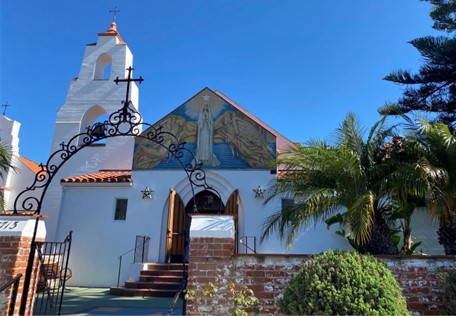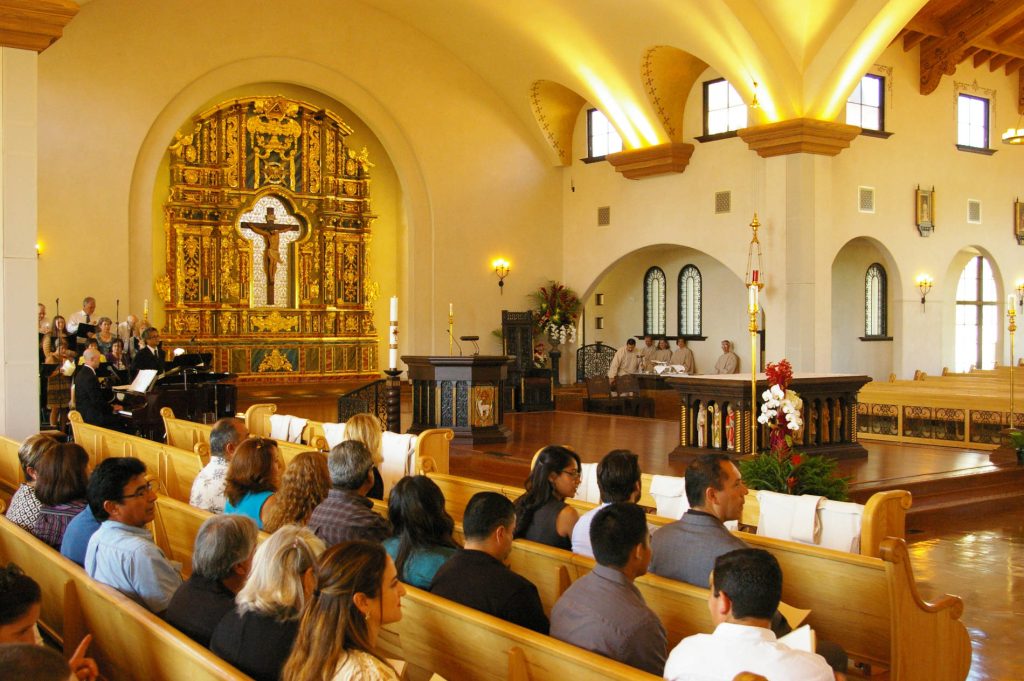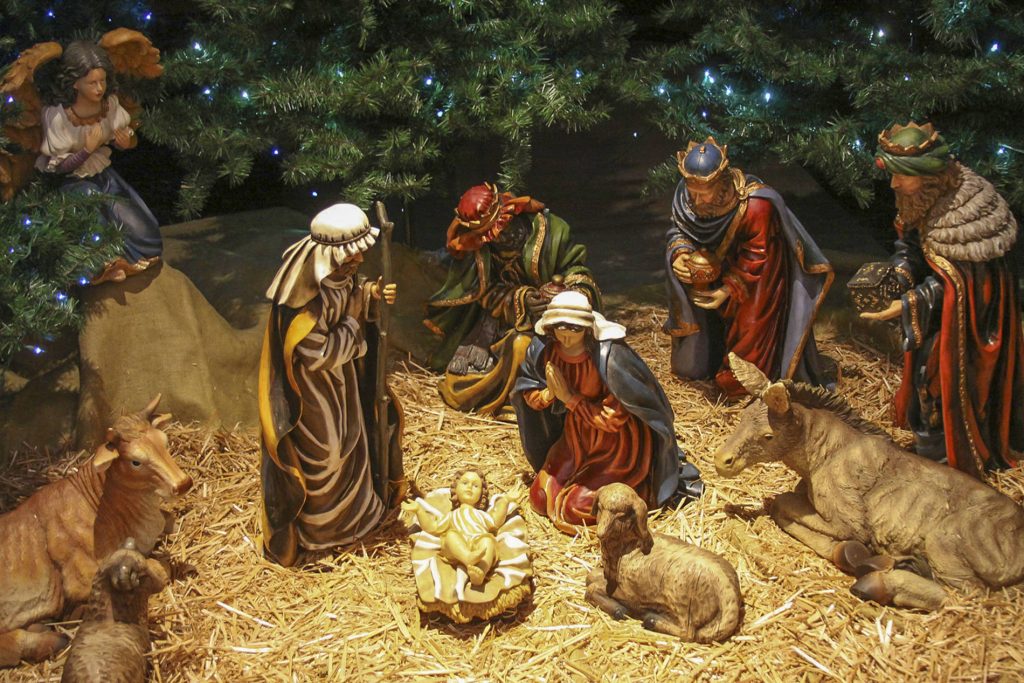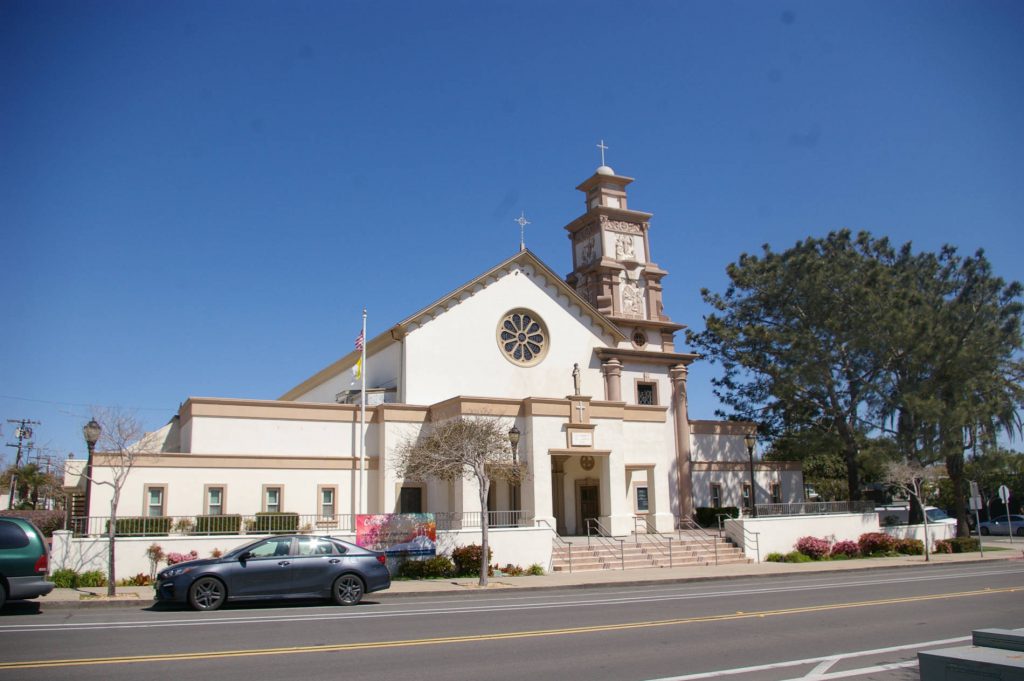SAN DIEGO — National Vocation Awareness Week, established by the U.S. bishops to promote vocations to priesthood, diaconate and consecrated life, will be observed Nov. 6 to 12.
Sister Kathleen Warren, OSF, a member of the Franciscan Sisters of Rochester, Minn., is in her sixth year as director of the Diocese of San Diego’s Office for Women Religious, where she serves as the liaison between Cardinal Robert W. McElroy and the religious sisters who live and work in the diocese. She is also a first point of contact for local women discerning a call to religious life.
Sister Warren, 73, is originally from Rochester, where she attended elementary and high schools run by the Rochester Franciscans. She entered religious life after high school in 1968, professing her first vows in 1970 and final vows in 1975.
Question: When did you first feel called to religious life?
Answer: My dad used to say that I announced, as a first-grader, that I was going to be a sister when I grew up. But I have no memory of that.
I seriously considered a religious vocation for the first time during my senior year in high school. I and a group of other senior girls were catching up with a priest who had been our teacher when we were freshmen and sophomores. He asked if any of our classmates were planning to go to the seminary after graduation, and we told him, yes, one guy was. Then, he asked if anyone would be entering the convent. We looked at each other and said no.
After that conversation, I couldn’t get his second question out of my mind, and I knew I had to take it seriously. I started exploring the idea of joining the Rochester Franciscans and, the more I looked into it, the more I felt that this was what I wanted to do with my life.
What was the appeal of the Franciscan Sisters of Rochester?
I grew up in Rochester, where they have their motherhouse, and they were the only sisters anybody there ever saw. They ran three local Catholic schools, as well as St. Mary’s Hospital. For a while, I didn’t even know that there were other kinds of sisters.
Also, the Franciscan way of life has always resonated with me. I think that’s partly because of the way I grew up. I spent summers at my grandmother’s farm, enjoying baling hay and picking apples. Creation, in each of the four seasons, was always just a wonderful part of my growing up, and that’s so much a part of the whole Franciscan spirituality as well.
What are your responsibilities as director of the diocesan Office for Women Religious?
It’s really a ministry of service — service to Cardinal McElroy, because I act as his representative to the women religious in our diocese; service to the religious sisters themselves, supporting them in whatever ways I can; and service to the wider diocese by promoting and nurturing vocations to the consecrated life.
It’s a wonderful ministry to be involved in. Here in the Diocese, we’ve got the best sisters ever; I really do believe that. It’s just been an amazing gift in my life to be in this position.
How often do you hear from women who are discerning religious life?
I probably talk seriously with about 10 women a year. After an initial phone conversation, an in-person meeting is arranged.
The youngest was a high school sophomore who came with a parent. On the other end of the spectrum are women who have been married and widowed and are now exploring the possibility of a religious vocation. There is a great variety of ages and backgrounds who inquire.
When they meet with me, I always ask if they’ve checked out the Office for Women Religious’ webpage, explaining that it has links to the websites of the 38 religious congregations with a presence in our diocese. I ask what their interests are, whether they are drawn to contemplative or active life, and then recommend helpful reading materials. I also offer to connect them with a spiritual director or a vocation director. We have two vocation directors in our diocese who are terrific to work with.
You organize the cardinal’s annual appreciation lunch for women religious. What makes that such a meaningful event?
It’s one of the highlights of the year. We come together in a very festive atmosphere with the bishop, now cardinal. Close to 100 sisters attend the event, which is held in either February or March at the diocesan Pastoral Center.
We get to share our stories and invigorate each other with a spirit of the goodness of this life. It’s a real celebration of our vocation and of the beautiful and unique ways that the call to religious life is incarnated in the world.
During the luncheon, we recognize those sisters who are celebrating significant anniversaries, or “jubilees.” These include sisters marking 25, 50, 60 and even 75 years in religious life.
What’s your assessment of the current state of religious vocations among women?
The number of vocations has certainly gone down. But women are still being called, and smaller numbers don’t diminish the commitment and vitality of those who answer the call.
One of the reasons for the decline is that Church ministry has been opened up to lay women, who are earning degrees in Theology and holding leadership positions at the parish, diocesan and national levels that, 20 years ago, would have been held by religious sisters. There’s a lot of woman-energy in Church leadership now, and one doesn’t have to enter consecrated life to offer that.
At one time, it was unheard of for women to be hospital administrators; then, religious sisters started founding hospitals. Similarly, religious sisters blazed a trail for women to serve as high school principals and to lead colleges and universities. Today, women religious are finding new frontiers, leading ministries of compassion in such areas as migrant and refugee services.
The world has changed and, like most realities of human life on Earth, religious life is also being transformed. I have every confidence that there will be religious life in the future, but what it’s going to look like, the exact form it’s going to take, is yet to be revealed. This is an exciting and hopeful time in the history of consecrated life in our Church.

